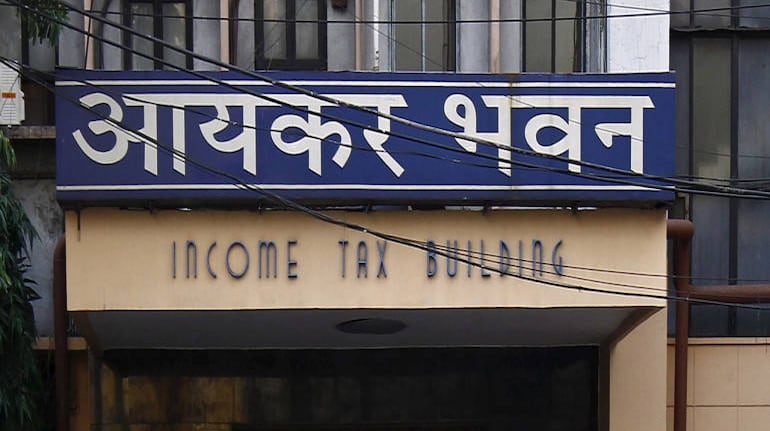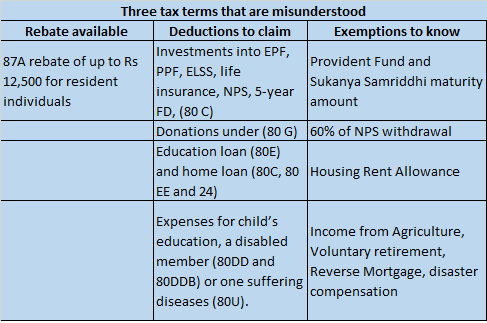



Khyati Dharamsi
It is that time of the year when tax returns are on everyone’s mind. To help you reduce your tax outgo, rebate, exemption and deduction are three commonly used tax heads. But what do these terms mean and how are they different from one another?
Let us understand the distinction among them.
Rebate
Rebate is nothing but a refund coming back to you. However, this can be claimed only when you file tax returns. So, the trick is to calculate the tax and then take a rebate.

So, currently a rebate offered under Indian income tax laws is to those at lower income levels. If you earn up to Rs 5 lakh in a year, then you can reduce your tax by up to Rs 12,500.
In a way, those belonging to the first tax bracket wouldn’t have to pay any tax if the total income calculation resulted in a tax of Rs 12,500 or less.
As a result of this rebate currently being offered, many low-income earners ultimately do not need to pay any tax. Yet, to ensure that they get this benefit, they would have to go through the procedure of filing a return.
Exemption
While one needs to file a return to claim a rebate, there is another tax offering – exemption – that can be claimed by all, whether they file returns or not. The earnings that government doesn’t want to tax are called tax exempt. Currently, any type of agricultural income is exempt from taxes.
Similarly, returns on investments in Public Provident Fund, Sukanya Samriddhi deposits for the girl child or maturity amounts of life insurance policies fall in this exemption category. If you opt for voluntary retirement, then the money received under VRS scheme is tax exempt.
Until a couple of years ago, dividend income from shares and securities too was exempt, but not anymore.
Deduction
A tax deduction is a reward given to taxpayers for certain actions. So, if the government wants to reward savings, it offers to reduce taxes if one invests a certain amount for a select number of years. In India, people are rewarded for saving in provident fund, life insurance, select mutual funds and 5-year plus bank deposits. If the government wants to borrow funds from citizens, it offers tax deduction for purchasing sovereign or infrastructure bonds.
There are rewards for purchasing health insurance, taking home loans, opting for an education loan or even for investing in another house after selling an existing one. If you donate some money to the needy, then you are rewarded with a tax deduction. If you are a needy person suffering from a disease or disability, then you or your family can reduce the income up to a certain percentage.
These concessions allow you to lower the total tax payable, as the taxable income gets reduced. While a tax rebate is beneficial for low-income earners, deductions can be claimed by all individuals irrespective of their tax slabs.
Discover the latest Business News, Sensex, and Nifty updates. Obtain Personal Finance insights, tax queries, and expert opinions on Moneycontrol or download the Moneycontrol App to stay updated!
Find the best of Al News in one place, specially curated for you every weekend.
Stay on top of the latest tech trends and biggest startup news.